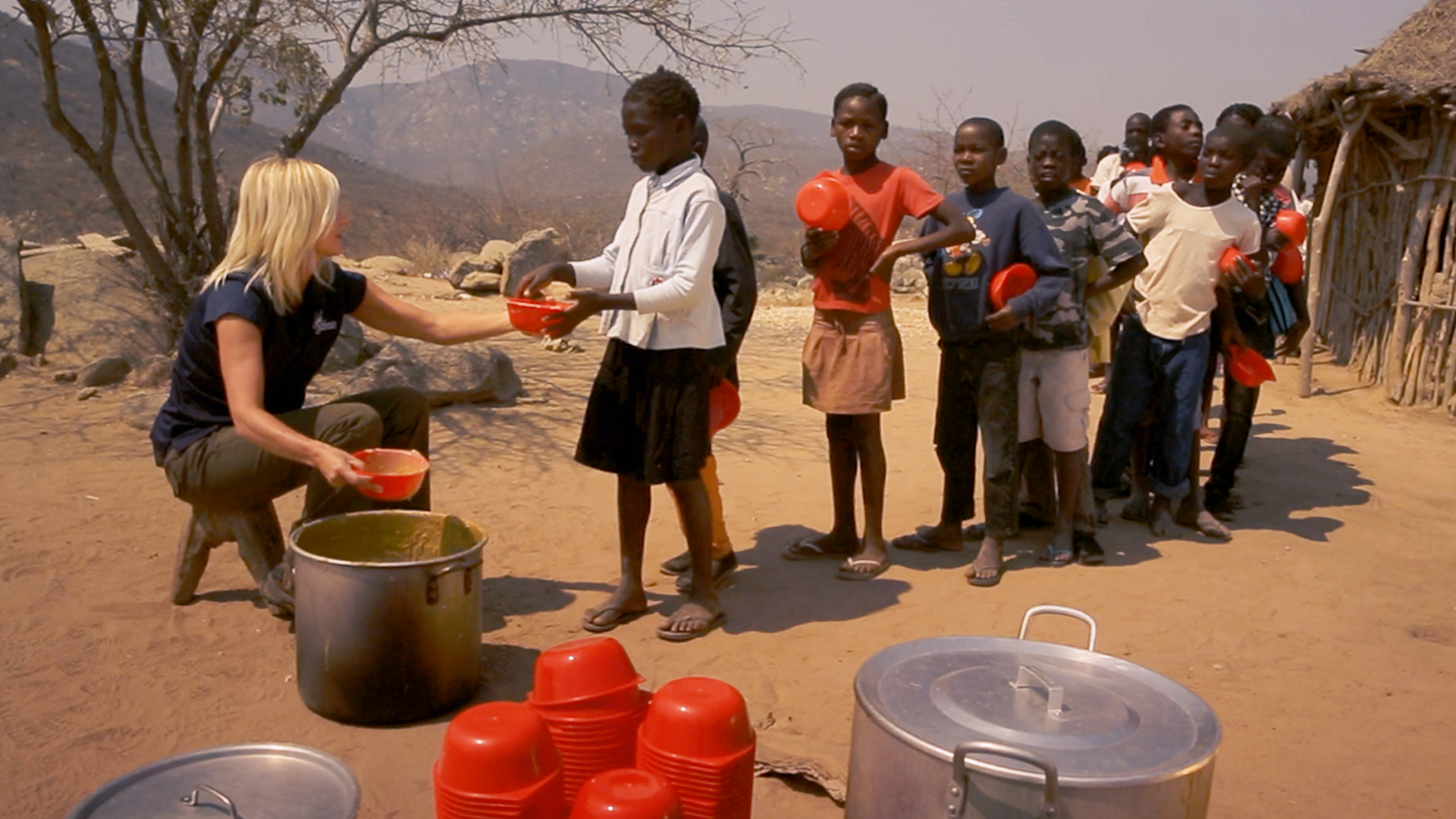During my senior year in college, I decided to read the Bible straight through quickly rather than in bite-sized chunks. When I did so, a larger pattern jumped out at me: God’s abiding concern for the poor, and his expectation that we share his concern. That’s the message from Genesis to Revelation.
Near the beginning, God tells the Hebrews before they enter the Promised Land not to “be hard-hearted or tight-fisted toward your needy neighbor…. Since there will never cease to be some in need on the earth, I therefore commend you, ‘Open your hand to the poor and needy neighbor in your land'” (Deuteronomy 15:7, 11). The Proverbs are chock full of commands that connect our love of God with how we treat the poor: “Those who oppress the poor insult their Maker / but those who are kind to the needy honor him” (Proverbs 14:29).
Outraged Old Testament prophets like Amos announce God’s judgment on Israel for defrauding those who can ill afford it, trampling the needy, and “bringing to ruin the poor of the land” (Amos 8:4-6). No minced words here: God let the Babylonians and Assyrians carry off the Jews into captivity because the Jews worshiped false gods and failed to care for the poor and needy.
It’s the same story in the New Testament. God became flesh and was born to a humble woman in a stable filled with animals. Poor shepherds were the first to hear the news and to see God become man. And Luke tells us that at the beginning of Jesus ministry, Jesus entered the synagogue at Nazareth—his hometown—and read from the prophet Isaiah:
The Spirit of the Lord is upon me,
because he has anointed me
to bring good news to the poor.
He has sent me to proclaim release to the captives
and recovery of sight to the blind,
to let the oppressed go free,
to proclaim the year of the Lord’s favor. (Luke 4:18 — 19)
When Jesus told listeners that he was there to fulfill Isaiah’s prophecy, they got so mad that he had to move on to Capernaum.
Jesus’ parable of the sheep and goats is really hard-core, and troubles the placid doctrine of salvation by faith alone. Jesus says that when the Son of Man returns to establish his kingdom, he will separate the “sheep” and “goats” depending on how they have treated people who are hungry, thirsty, strangers, naked, sick, and imprisoned. The goats are dispatched to “eternal fire prepared for the devil and his angels.” The sheep, in contrast, are told to “inherit the kingdom prepared for you from the foundation of the world.” That sounds much nicer, especially without all the goats. In the parable, the only difference between the sheep and the goats is how they treated the vulnerable, and so, by extension, how they treated Jesus himself: “Truly I tell you, just as you did it to one of the least of these who are my family, you did it to me” (Matthew 25:31-46).
At one point, a religious figure asks Jesus, “Teacher, which commandment in the law is the greatest?” Jesus says, “’You shall love the Lord your God with all your heart, and with all your soul, and with all your mind.’ This is the greatest and first commandment. And a second is like it: ‘You shall love your neighbor as yourself.’ On these two commandments hang all the law and the prophets” (Matthew 22:34-40).
Another time a lawyer asks Jesus how he can inherit eternal life. Jesus tells them he has to fulfill these two greatest commandments: love God to the full, and love your neighbor as yourself. The lawyer, sensing an unattainable goal, looks for a semantic loophole in the word neighbor. “And who is my neighbor?” he asks. Jesus then tells the story of the Good Samaritan. If you read it carefully, you’ll notice that Jesus never answers the lawyer’s question. Instead, after he tells the parable, he asks a different question: “Which of these three, do you think, was a neighbor to the man who fell into the hands of the robbers?” (Luke 10:25-37). His point seems to be that instead of trying to whittle away the definition of neighbor to get off easy, we should strive to be the good neighbor to everyone else. Jesus’ reversal prevents the man from simply taking a safe neighborhood where none of his “neighbors” will ever need help. Even if he lives in a gated community, his neighborhood extends well beyond the gate.
So God’s concern for the poor isn’t some sidelight. It follows straight from what Jesus tells us are the two greatest commandments. For any follower of Jesus, then, that we should care for and help the poor is not the question. The question is, How do we do it? “Piety,” said the Christian philosopher Etienne Gilson, “is no substitute for technique.” What he meant is that having the right intentions, being oriented in the right way, doesn’t take the place of doing things right. A pilot’s caring deeply for his passengers and wanting to land the plane safely are no substitute for his learning how to actually land planes safely. Jesus suggests the same thing. “Love the Lord your God with all your heart and with all your soul and with all your mind.” Don’t forget the third item: love the Lord with all your mind. Don’t misunderstand heart. Your heart isn’t just your feelings. In the Bible, heart refers to the seat of your will and your emotions. I hope you already have a heart for the poor. Lots of Christians do. But do you have a mind for the poor? Unfortunately, that’s in rather short supply.
God knows your heart. Spiritually you’re better off a little mixed up about your economics than indifferent to human suffering. Economically, though, only what you do is important, whatever your reason. Buying a bunch of bananas at Costco will have the same economic effect no matter why you buy them.
Our minds and our motives aren’t isolated compartments. God gave us minds and reason, so we are responsible for thinking through the consequences of our actions. In fact, it is morally self-indulgent to feel good about our motives when it comes to actions that affect the world. When the focus is personal spiritual growth—sure, we should examine our motives. But when it’s time to roll up our sleeves and actually try to help someone, fixating on our motives can become a stumbling block. It can distract us from discovering the right action at the right time. Teenagers rightly ask, “What would Jesus do?”
I’m going to sound like a schoolmarm, but I’ll say it anyway: we need to exercise prudence. Prudence means “to see reality as it is, and to act accordingly,” to conform your mind, and then your actions, to reality. It’s one of the four cardinal virtues, along with justice, fortitude, and temperance. Cardinal is based on the Latin word cardo, which means “hinge.” These four virtues are cardinal because all the other virtues hinge on them. Helping the poor, for instance, hinges on prudence. That’s because, in the economic realm, actions have all sorts of unintended consequences. We can’t anticipate all of them. But we can anticipate a lot of them. Therefore, if we really want to help the poor, we have to exercise prudence—to know what the world is really like, and act accordingly.
Excerpted from Money, Greed, and God by Jay W. Richards. Copyright © 2009 by Jay W. Richards. Used with permission of HarperOne, an imprint of HarperCollinsPublishers.










